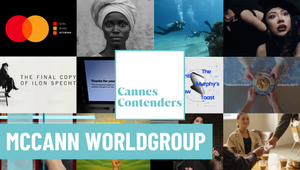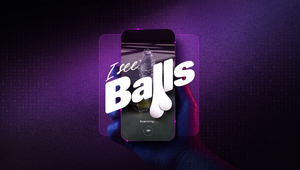
The Equality Horizon for Brand Britain: Perspectives from the LGBTQ+ Experience

The UK has entered Pride season, with celebratory signs of the progress achieved over the last 50 years. In central London, Pentonville Prison has a rainbow flag raised on one of its two masts. In the streets, Zipcars are emblazoned with the LGBTQ+ community’s most inclusive rendering of the pride flag. On the mastheads of publications and the profile logos of companies across the world, and especially within Britain, signals of support for the LGBTQ+ community are constant.
The extent of representation of the LGBTQ+ community at the centre of British society is a demonstrable sea-change. At the time of the very first Pride marches in London in 1972, there was little to no media coverage of those events. During the Platinum Jubilee celebrations, veterans of the UK’s first LGBTQ+ advocacy group, the ‘Gay Liberation Front’, marched alongside drag artists. On the main stage, LGBTQ+ performers were numerous. Yet, in ongoing research that we have conducted to track the British LGBTQ+ experience, these representational politics are not consistently in line with the lived experience of the larger community.
NOT ALL PRIDE IS CREATED EQUALLY
While the invitation to participate in the Platinum Jubilee was met with enthusiasm by some members of the LGBTQ+ community, prominent activist Peter Tatchell refused to participate, remarking “I do not wish to participate in a pageant that celebrates a monarchical regime based on hierarchy, deference and inherited wealth, status and power. It is a leftover from feudalism that defies modern aspirations for democracy, egalitarianism and meritocracy.”
Tatchell’s critique of the monarchy might strike some as extreme, yet our research indicates that the LGBTQ+ community is much less likely to express pride in the Royal Family (18%) than non-LGBTQ+ Britons (32%). This pride gap is not restricted to the Royal Family, with LGBTQ+ individuals expressing less pride in all institutions except for the National Trust. So, it’s probably unsurprising that LGBTQ+ Britons are half as likely to feel “proud to be from this country” than their non-LGBTQ+ peers (36% vs. 61%).
Our research helps unlock some of the reasons why in this set of divergences in national opinion. First, it is evident that for the LGBTQ+ community, the value of equality is more widely embraced. When asked to identify the top values that are central to contemporary Britishness, equality of all under the law (including sexuality, race, gender, etc.) is the top-ranking value selected by the LGBTQ+ Britons, compared with ‘freedom’ which is the choice of non-LGBTQ+ Britons. Furthermore, one-third of LGBTQ+ Britons say that this value is currently decreasing in British society.
As a community of individuals who are keenly aware of the challenges of inequity and inequality, it is unsurprising that LGBTQ+ Britons would be more frustrated in view of related issues. From the cost-of-living crisis to tax avoidance by businesses to cuts in public services, LGBTQ+ Britons express more widespread frustration than their non-LGBTQ+ peers. Given these dynamics, the fact that British LGBTQ+ express pride in the nation at half the rate of the national average (36% vs. 61%) is consistent with what appears to be a more critical view of the nation, its institutions, and contemporary social issues.
SOLIDARITIES BEYOND THE RAINBOW
Perhaps most surprising in our research is the extent to which the relevance of LGBTQ+ rights is limited in the broader national sentiment. Britons are increasingly convinced that brands should be playing a more vital role in society, with 1 in 4 saying that brands should make political statements (rising from 1 in 6 in 2018). This rate is even higher amongst self-identified minorities. However, the sorts of issues that the non-LGBTQ+ population believes brands should be involved in are primarily climate change and animal rights. Only 5% of non-LGBTQ+ Britons believe that brands should have a point of view on LGBTQ+ rights, a rate that has been on the decline since 2012.
This stands in contrast to the concerns of LGBTQ+ Britons. LGBTQ+ Britons over-index in their expectations of brands to take action on equality related issues, from women’s rights to multicultural issues to LGBTQ+ rights. Indeed, 1 in 4 LGBTQ+ Britons believe that brands should have a point of view on LGBTQ+ rights. This may be partially because LGBTQ+ Britons tend to most strongly identify with their LGBTQ+ status as a defining feature of their identities, but it is also partially a distinctive view that this community holds of the role that brands can play in their lives and in the world. Not only do the majority of LGBTQ+ Britons (50%) tell us that the brands they buy say something about their identity, but they (57%) also believe that brands have an important role to play in bringing society together.
This is especially important for a community with floundering trust in most institutions. From politicians to airlines to alcohol brands, LGBTQ+ Britons express less trust across the board. Institutional shortcomings for the LGBTQ+ community have been especially apparent in 2022. Both the Rainbow Europe rankings and the Council of Europe have indicated that the macro-structural conditions for LGBTQ+ equality are on the decline in the UK. Participants in a recent round table we hosted told us that this is not limited to the macro-conditions of policy but is evident in the most mundane of circumstances:
“Just have to fight for more stuff all the time. Just get worn out and low on resources and so on.”
“There are a lot of microaggressions that you put up with that you just ignore or become part of normal life. For instance, when you book a hotel room and they say, would you like twin beds or you booked a double, would you prefer twin beds? No. I wouldn't, that's why I booked a double bed.”
“One might even say that when it comes to diversity issues like LGBT rights that affect predominantly whites have been addressed better than those issues that affect issues of people of colour.”
“Apple has a biannual conference in which it sets out its vision for the next six months. And yes, this is about developing phones and improving cameras and giving you some spanking new headphones. They say what they want to do, and then they do it. Whereas we're not getting anything like that kind of vision from any of our major institutions.”
Given these institutional challenges, it’s understandable why LGBTQ+ individuals are more likely than their non-LGBTQ+ peers to say that they expect brands to understand their frustrations rather than provide them with dreams (69% vs 58%). LGBTQ+ Britons are looking to brands to respond to real institutional, cultural, and political challenges. This expectation is only being intensified in the contemporary social climate. While it’s true that British LGBTQ+ are as ready today as they have ever been for a celebration, it’s also true that despite any recent strides, the work of allies, members, and leaders is as urgent as it has ever been. Brands are fortunate in that they are now increasingly seen to be key players in advocating and advancing progress.
Authors:
Dr. Rodney Collins, PhD, EVP, Global Head of Human Sciences, McCann Worldgroup
and the McCann Worldroup-UK TruePride Alliance:
Ruth Harper, Strategy Director, McCann Demand
Louise Hewitt, Director of Medical Copy, McCann Health London
Alex Lilly, Creative Comms Planner, McCann Milton Keynes
Jamie Peate, Global Head of Retail Strategy and Head of Effectiveness for UK, McCann Worldgroup
Methodology
McCann Worldgroup's Truth About Britain 2022 study builds on 15 years of trended data and research about the nation’s cultural, social, and political fabric. Conducted by McCann Worldgroup Truth Central, the organisation's global intelligence unit, the quantitative study surveyed more than 1,200 people (nationally representative across regions, ethnicity, age, LGBTQ+ status, disability). Truth Central also built an online ethnographic community of 55 individuals from across the nation. For more information, visit https://truthaboutbritain.mccannworldgroup.com/p/1















